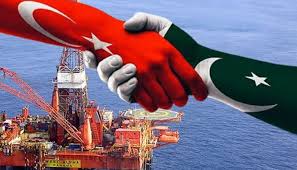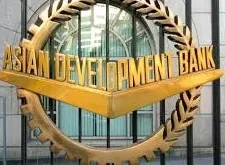
The two countries this week signed an agreement at the 2025 Pakistan Minerals Investment Forum in Islamabad to jointly bid on 40 offshore blocks. A bidding round for the granting of exploration licenses for the blocks, located in the Makran and Indus basins, was announced by the Pakistan government in February.
According to News.AZ, Pakistan’s Mari Energies Limited, Oil and Gas Development Company Limited and Pakistan Petroleum Limited will jointly participate in the offshore bidding round with Turkish state-owned enterprise Türkiye Petrolleri Anonim Ortakl (TPAO).
Modern Diplomacy said the finding, made during a three-year survey, compiled data that suggests it is the fourth biggest oil and gas reservoir in the world. Venezuela, Saudi Arabia and Canada are the three countries with the largest proven oil reserves.
The cache is reportedly so large it could change the economic direction of Pakistan, where one in four people live in poverty.
If Pakistan’s offshore reserves are that big, the obvious question is why haven’t the oil majors been pestering the Pakistan government to drill them?
In a January 2024 article, Oilprice said Shell announced it was selling its Pakistan business stake to Saudi Aramco in June 2023, and an auction for 18 oil and gas blocks got a muted response from international bidders, at best. No international companies even bid on 15 of the blocks, according to The Nation.
In July [2024], the country’s Petroleum Minister, Musadik Malik, told a parliamentary committee that no international companies were interested in offshore oil and gas exploration in Pakistan, and those in the country largely had the exit door in view.
It comes down to security, and risk versus reward with Malik explaining to the committee that the cost of security is a major deal-breaker because “in areas where companies search for oil and gas, they have to spend a significant amount to maintain security for their employees and assets”. And security is provided by Pakistan, which has not been up to the task.
According to Pakistan’s Energy Minister Mohammad Ali, Pakistan has 235 trillion cubic feet (tcf) of gas reserves, and an investment of $25 billion to $30 billion would be enough to extract 10% of those reserves over the next decade to reverse the current declining gas production and replace the import of energy.
The oil and gas discovery could yield additional benefits. Modern Diplomacy notes that Pakistan’s marine areas are rich in natural resources including minerals such as cobalt, nickel and rare earth elements. The idea is to leverage its “blue water economy”.
“The potential here goes beyond electricity, encompassing businesses such as fishing, marine biotechnology, and even ecotourism. A coordinated effort to expand these industries might give Pakistan a variety of revenue streams and employment generation, therefore strengthening its economy,” the publication stated.
While Pakistan may not have the technological capabilities for deep-sea mining, there is a growing global interest in this area, with some companies exploring the potential for mining polymetallic nodules that contain valuable metals.
 BeNewz
BeNewz




